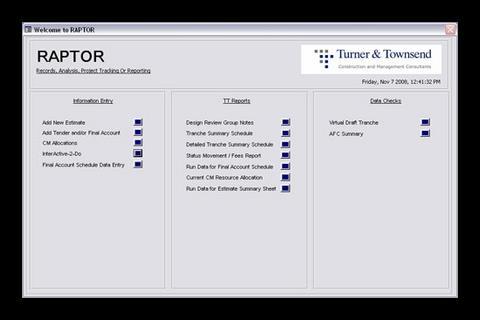The shortlisted firms in this category are Chandler KBS, Baqus, Davis Langdon, Turner & Townsend
Baqus
Baqus, formed just over a year ago, is an innovation in itself. In the QS market, the business model has traditionally been either to operate as a consultancy giant, with more than 100 staff, or to be like the firms 85% of QSs work for – a practice with six or fewer people. Formed from the merger of three medium-sized QSs, Baqus bridges the gap – and the firm’s AIM listing has marked it out as a pioneering business leader in a fragmented sector.Chandler KBS
Welsh Water really cleaned up the day it appointed Chandler KBS. The firm’s unique Unit Cost Database linked day-to-day estimating with Welsh Water’s investment planning system to come up with an investment plan and operating model that had produced initial efficiency savings of up to £70m, together with potential annual savings of a further £13m. Not bad for a programme that cost just £550,000 to develop …Davis Langdon
With the battle against climate change ever higher on the political agenda, the heat is really on the industry to come up with ways to reduce the carbon footprint of buildings, and here Davis Langdon is leading the way. Its “carbon ready-reckoner” is a case in point. An accessible model that provides designers with a reliable estimate of embodied carbon footprint at an early enough time to reduce environmental impact, the model will surely become a must-have tool for environment-conscious clients.Turner & Townsend
Raptor, the brainchild of Turner & Townsend, is not a beast its creators’ rivals are going to like to see bearing down upon their tenders. An ultra-sophisticated project database, Raptor enables the simultaneous tracking of more than 650 projects for a single client, all but solving the mystery of a programme’s final cost and time outcoms. After a hugely successful introduction, Raptor is now on the radar of global clients.


























No comments yet